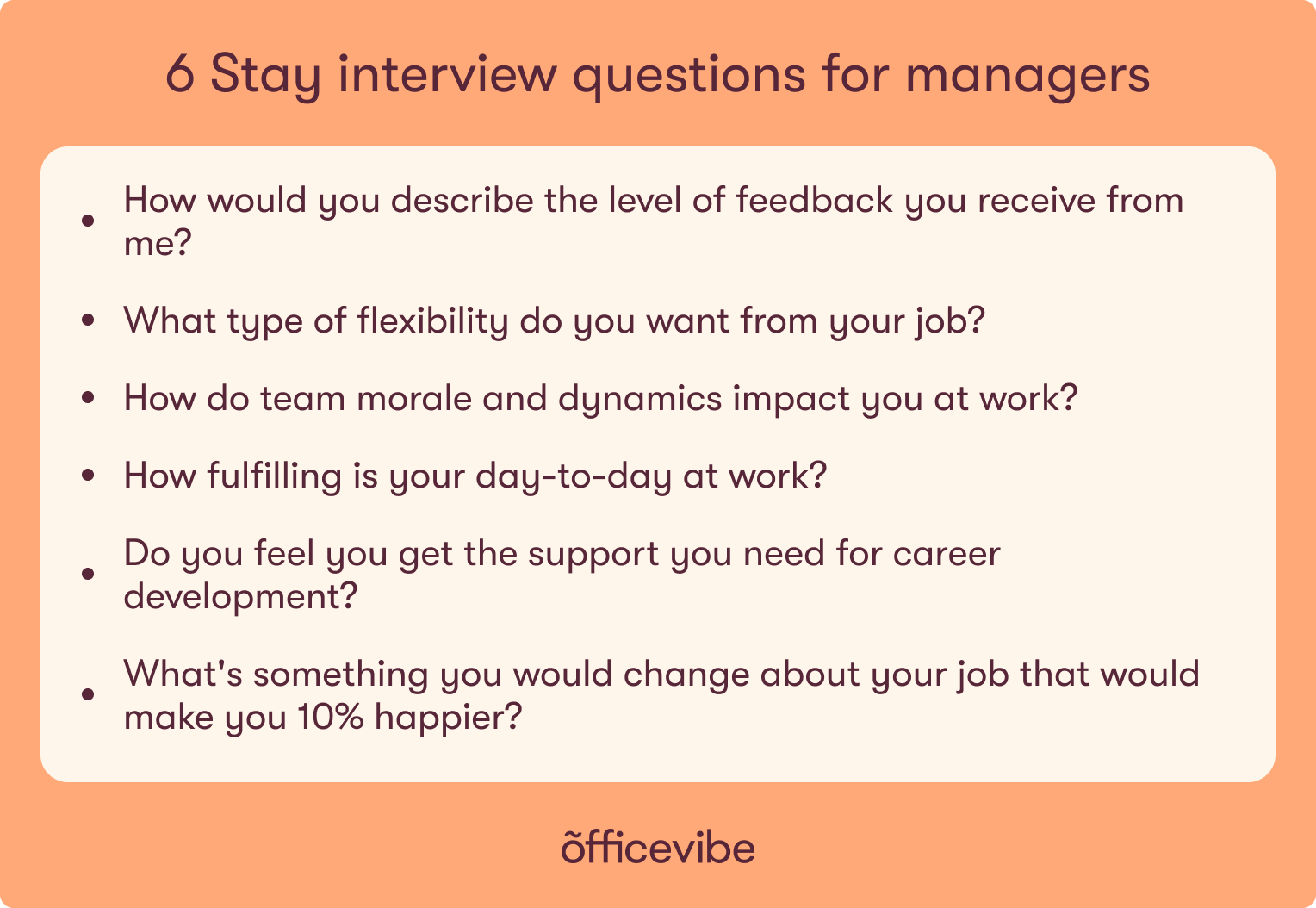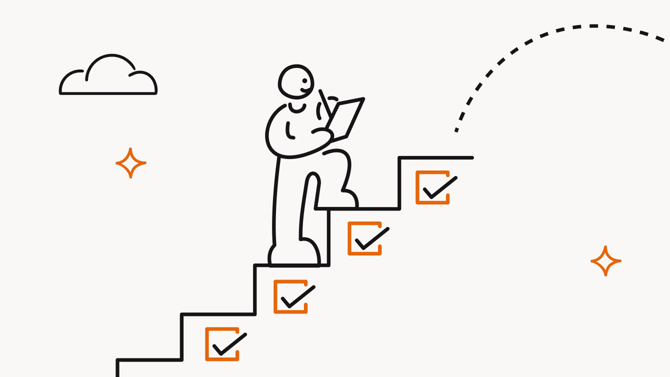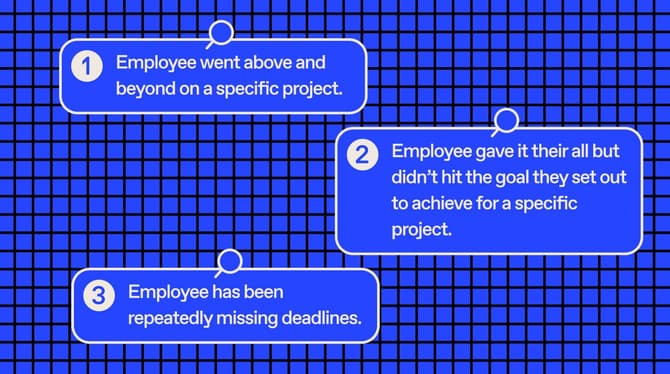In 2021, businesses across industries have seen a serious spike in their turnover rates. People have had time to reevaluate and start looking for something new. But where does this leave managers and teams who are staying put?
You’ve made it through the rocky terrain of the last year, and now, your best performers are leaving just as business is finally getting back to normal.
You might be wondering what you can do to improve your team's retention and keep your top talent. Cue the stay interview. Stay interviews are a way managers can check in with their team members about what’s keeping them committed to their job.
These stay interview questions help you really understand what's behind your employees' dedication to your team. With this information, you can amplify what drives employee engagement and build an effective retention strategy for your team.
Stay interviews: what they are and why they matter
A certain amount of turnover is to be expected at every company. But as a manager, too much turnover on your team can lead to lower engagement and morale, fear and uncertainty, and decreased productivity. What’s worse, when one person leaves a team you might see a domino effect, with their other colleagues leaving shortly after, too.
The idea of a stay interview is to be proactive, and not wait until your employee has already handed in their 2 weeks notice to do an exit interview. It’s a way for managers to spot what might be swaying someone to leave and address it before they start looking for other opportunities. Or, it can help you reduce turnover that's already happening by pinpointing common pain points. It's also a way to find out what employees really love about their jobs, and make sure those engagement factors are upheld.
Stay interviews questions for managers
The best way to have stay interviews is to schedule a one-on-one meeting with each employee on your team and share a list of talking points ahead of time, so they can reflect and arrive prepared. Here are some questions you might ask in a stay interview.
1. How would you describe the level of feedback you receive from me?
We recommend asking this question to get insights into where you can improve your feedback practices as a manager. Getting specific, relevant feedback is an essential element of ongoing development and improved employee performance.
1 in 4 employees say the feedback they get isn't frequent enough to help them improve.
Officevibe's Pulse Survey data
If your direct report isn't getting enough feedback, or the feedback they're getting isn't helping them to improve, they may look elsewhere for career advancement opportunities. What works well for one employee when it comes to receiving feedback might not work well for another. Be sure to pinpoint how your feedback is being perceived so you can better meet each person's needs.
Tip: Follow up on this question by asking your employee how they would like to receive feedback from you and what they'd like feedback on going forward.
2. What type of flexibility do you want from your job?
Even before the pandemic, flexibility was important to job satisfaction. A 2019 survey from FlexJobs found that 30% of respondents said they left a job, and 16% said they were looking for a new job, because of the lack of workplace flexibility.
Giving employees flexibility to manage their own time and work where they choose can improve productivity and employee engagement. It also shows trust, which makes people feel more autonomous and personally accountable at work. All of this has tangible benefits for employee retention and reduced employee turnover.
Make sure to inquire how people are feeling about their current state of flexibility in their work rather than assuming you know what they want. For one employee, flexibility might mean shifting their work schedule earlier or later. For another, flexibility might mean working from home several days a week or having extra personal days.
Types of flexibility to ask about:
- Remote and in-office work
- Schedule and working hours
- Time off and vacation days
3. How do team morale and dynamics impact you at work?
Negative attitudes can poison the well quickly, and when morale is low, it might lead some of your employees to seek a job elsewhere. Employee morale can drop when people feel like they're not reaching their goals or when they're not getting along with their peers.
Big changes in strategy, structure, or leadership can destabilize a well-established team dynamic. And of course, a wave of turnover on your team can cause trust and collaboration to take a hit. Especially when roles, responsibilities, or objectives become unclear, team conflict can gain momentum and make everyone feel a little less motivated.
Understanding how people perceive the team dynamics will help you spot red flags. That way, you can work to improve employee morale by addressing the underlying issues that led to low morale in the first place.
4. How fulfilling is your day-to-day at work?
Lack of purpose is a huge factor in employee turnover. People want to see the greater impact of their work and feel connected to the purpose of the company. But at a more granular level, people want to end their work days feeling like they've applied themselves and accomplished something.
1 in 5 employees say they don't feel a sense of purpose in their role.
Officevibe's Pulse Survey data
Get curious about how connected people feel to team and company missions and goals. And then go further to find out how fulfilled people feel in their roles on a day-to-day basis. You can ask what tasks and responsibilities are energizing for your employee, and what drains them.
Use these insights to create a more fulfilling day-to-day for your team members in their roles, responsibilities, tasks, and projects. Company alignment is important, but if people feel burnt out or uninspired by their role, they might look for job opportunities that will better leverage their skill sets.
5. Do you feel you get the support you need for career development?
Professional development and personal growth are among the most important elements of employee engagement. As a manager, part of your role is to make sure your employees feel supported in their growth.
Ask people about their long-term career goals and whether they feel these are attainable at this company and on this team. If not, talk about what would be needed to make it possible, and what more short-term goals they could achieve where they are now.
Ways to support professional development:
- Set individual goals every 3-4 months with each team member.
- Review roles and responsibilities at least twice a year.
- Connect employees with a mentor in their area of expertise.
6. What's something you would change about your job that would make you 10% happier?
Happiness at work might be the simplest yet most powerful measure of job satisfaction. Levels of employee happiness are influenced by everything covered in the questions above and more. And a little happiness boost can go a long way.
By asking your employees what would make them happier, you take the guesswork out and can tackle any low-hanging fruit that may be getting in their way. You also show them that you care on a personal level, and that work is about so much more than output.
See what you can influence for your team members that will make a small, but meaningful difference in their employee experience. The manager-employee relationship makes a huge difference in job satisfaction, employee engagement, and ultimately, retention. So be the best manager you can be and follow through on your commitments, big or small.
Too busy? Save our stay interview questions for reference
You can save the image below (drag to your desktop or right-click and save) with the main and most actionable points from this article, and/or send them to your email.

Host your next stay interview with these questions!
Just like visiting the dentist, don’t wait until it hurts to have a check up and improve the health of your team. With this list of questions ready to go, you can schedule a 1-on-1 with each team member and get ahead of turnover. Be sure to take notes, think through what your employees have shared with you, and set some action items for the week to come. Improving engagement bit by bit helps you retain your top talent and build a stronger team.
Equip HR and managers with tools to engage, recognize, and drive performance.




